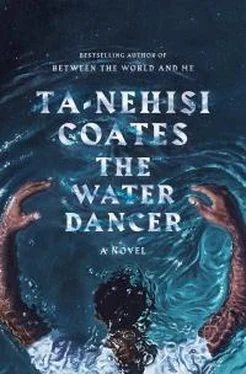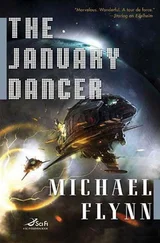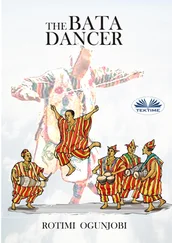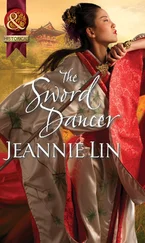And then we were crossing the bridge and turning our way in to Starfall, and it was such a beautiful and crisp November day, so that you could look west and see the last turning of the trees, bits of orange and yellow exploding off the mountains. We hitched our horse and chaise, then walked toward Market Street and were met by a parade of Virginian splendor. They were all out there, the Quality, out there in their masks and garments, the ladies in powdered faces, white gloves, and silk scarves, their bosoms heaving and their parasols held up by colored girls to preserve the ivory sheen of their skin. The men all seemed in uniform—black coats, cinched at the waist, gray trousers, horsehair stocks, stove-pipe hats, walking sticks and calf-skin Wellingtons. As always, they left the captain’s share of glamour to their women, trussed in corset and bodice so that they walked slow, measuring all their movements. But there was still a dance in how they moved, with their swanning necks and their swaying hips. I knew they’d been learning to walk like this all their lives, under mistresses and mothers, because it was never the costume that made the Quality, but how the lady wore it. The Northerners from New Hampshire and the pioneers of Paducah and Natchez and the low whites of Elm, all walked with them, but seemed to watch more than walk as this parade of the beautiful and divine made its way down the main avenue of our Starfall, looking as though they would never die, as though Virginia would never die, and this empire of tobacco and bodies would shine like some old city on the hill, so that all the world would wonder why it did not live in the eternal splendor of these first families of Elm County.
I recognized many among them, and remembered even some to whom there was no introduction, remembered them by some stray remark or act. And then there were those whom I knew quite well, men like my old tutor, Mr. Fields, whom I spotted walking alone in the parade. He seemed to be studying the crowd, and when he saw me, he offered a small, thin smile and tipped his cap. I hadn’t seen him since our last lesson so many years ago, though I know now that our ending, on the tail of Ursa Minor, was itself a sign. I looked over to see if Maynard had seen Mr. Fields, but he was hypnotized by the glamour, his eyes wide as dreams, a toothy smile spreading across his face. He was not like them, and I can remember feeling ashamed for my part in this. I had done my best for him that morning, fitting him into his clothes, but between his proportions and his habit of pulling at his waistcoat and collar, no ensemble ever properly fit. Still, he was so very happy to be there. All year he’d nursed his indignities, but now he hoped, through his merits as a sporting man, he would be returned to the fold. They were his people, his by regal blood, and so there he stood before that parade, with no power to distinguish his own place in it. He pulled at his shirt collar again, laughed loud, and then waded out into the slow parade of Quality, all moving toward the races.
—
Maynard sighted Adeline Jones, whom he’d once wooed, as much as Maynard had ever wooed anyone. I had heard that she’d quit Elm County, quit all of Virginia, for a lawyer up North. But the races had brought Adeline back, I assumed, if only to take in the changes in her old home. She was a kind woman, and Maynard had always taken this kindness as an invitation to her affections. Now he angled his way through the crowd, waving his hat, and approaching her said, “Hey there, Addie! How are you this day?”
Adeline turned and greeted Maynard with an edgy smile. They talked for a few minutes and then started walking again with the processional, Adeline ill at ease, and Maynard excited to have attached himself to someone. I shadowed them from the edge of the avenue, as all the other tasking men shadowed their charges, watching at a distance as Maynard grew more excited in conversation and Adeline’s tolerations were taxed. But she bore it well, as the ladies of Quality were trained to do. Her mistake had been appearing here without a gentleman at her side, one who could shield her from Maynard’s conversation, which was now so boisterous that I could hear it above the din of the crowd. He was going on about Lockless, about its prosperity and charms, about her mistake in not succumbing to them, and he did this in tedious jests that were only lightly concealed boasts, and Adeline was forced to bear all this with a smile.
When they reached the racetrack, I watched as she was at last rescued by a passing gentleman, who extended his hand to Maynard and then quickly, sizing up the shape of things, rushed her away. Maynard paused at the gates, and then looked up into the stands to the jockey club, just beginning to fill with subscribers, where he’d once held forth but had been unceremoniously ejected. I walked closer now, with Adeline gone, then stood off to the side and looked to Maynard, who was now lost in a world of painful longing, for race-days past when he was welcomed, or at least allowed, among the gentlemen of the county. And then I saw the insult compound as Maynard’s eyes shifted from the gentlemen to the area demarcated for the ladies of Virginia, so that they need not suffer the gambling, coarse talk, and cigars of the men, and in that region I saw Maynard’s intended, Corrine Quinn, who seemed to have suffered nothing in her standing for her association with Maynard. And Maynard was no longer smiling, for he felt himself henpecked. There was his future wife, elevated to a standing higher than his own.
I peered into the ladies’ club as subtly as I could to get a better look at this woman. Corrine Quinn was out of another time. She spurned the ostentation of the parade, the garments that, in their great extravagance, in their defiance, testified to the dying soil, the tasking families divided, the diminishing tobacco, the fall that was all around. She stood in the stands, in calico and gloves, talking to one of the other ladies, while Maynard watched with scornful eye. Then he shook his head and walked off to take his place, not among the gentlemen, but in the motley of low white men, a class whose position in this society of ours always amazed me. The low whites, men such as our own Harlan, were tolerated publicly by the Quality, but spurned in private; their names were spat out at banquets, their children mocked in the parlors, their wives and daughters seduced and discarded. They were a degraded and downtrodden nation enduring the boot of the Quality, solely for the right to put a boot of their own to the Tasked.
My place was among the coloreds, some Tasked, some free, seated on the waist-high wooden fencing, just off from the stables, where still other colored men tended to the racehorses, feeding them and looking after their health. I knew a few of them—including Corrine’s man, Hawkins, whom I saw sitting on the fence with some of the others. I nodded in greeting. He nodded back, but did not smile. That was his way, this Hawkins. There was something cold and distant about him. He perpetually wore the look of a man who suffered no fools, but felt himself surrounded by them. He scared me. There was something hard about him, and I knew just by his manner that he had endured some terrible, unspeakable portion of the Task. I looked over and watched as the other colored men along the fence shouted and laughed with still others working the stables. And watching this silently, as was my way, I marveled at the bonds between us—the way we shortened our words, or spoke, sometimes, with no words at all, the shared memories of corn-shuckings, of hurricanes, of heroes who did not live in books, but in our talk; an entire world of our own, hidden away from them, and to be part of that world, I felt even then, was to be in on a secret, a secret that was in you. There were neither Quality nor Low among us, no jockey clubs to be ejected from, and this was its own America, was its own grandeur—one that defied Maynard, who must forever carp about his place in the order.
Читать дальше












